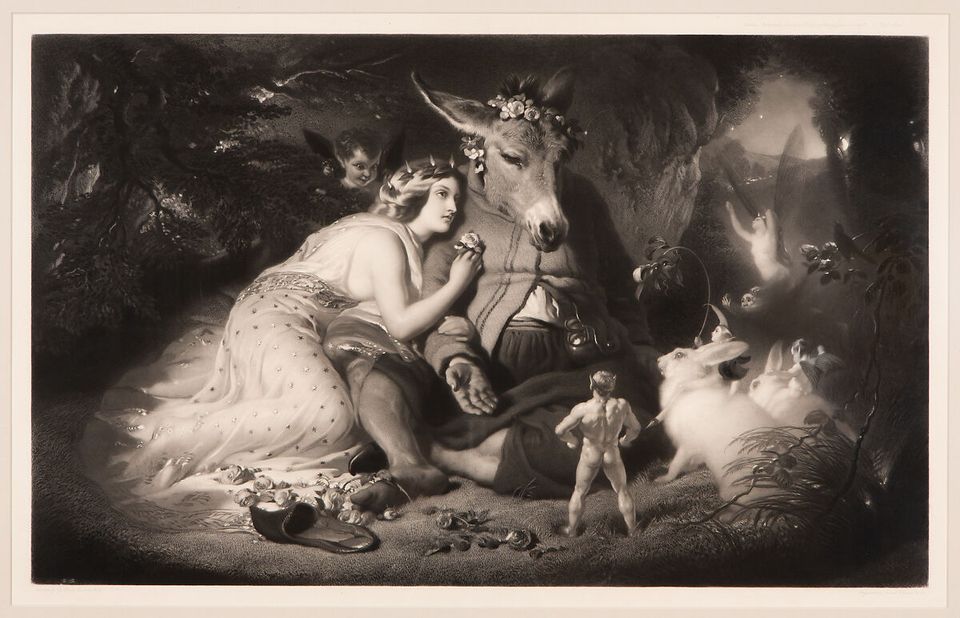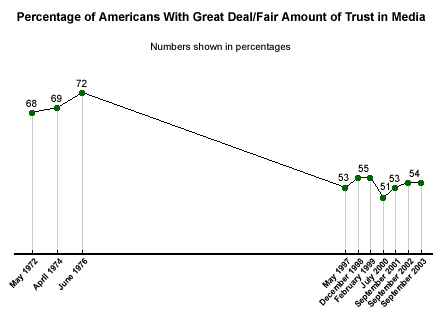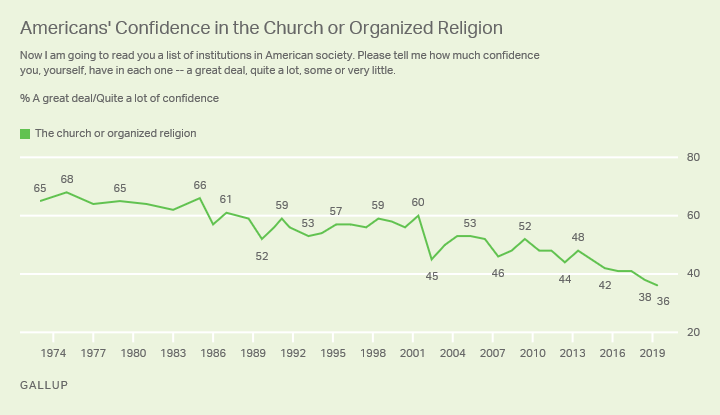What Fools These Mortals Be

In our discussion of stagnation so far, we have focused on economic, natural and cultural problems that have arisen over the past 50 years, but the scope of our discussion has been mostly within the confines of classically liberal thought. As I have alluded to, primarily in our discussion of meritocracy, there are alternative political beliefs that can explain stagnation. Foremost among them is Marxism's fateful prediction of the inevitable implosion of capitalism. There are also anarchist and fascist theories that could provide explanation, but I don't intend to dwell too long on any of these because our main objective is to determine how the classically liberal system that was working so well has gotten off track.
Still, a brief word on the various political heterodoxies before we turn to examining the democratic capitalist system's internal challenges. I addressed the Marxist critique in an earlier piece on inequality as a cause of stagnation. The view that democratic capitalist has internal contradictions may require a Leninist form of vanguardism and a more orthodox Marxist view fits with the previously discussed low-hanging fruit argument. It is possible that capitalism's time has come and gone. Perhaps society will move on to another political form, but I am not convinced. It is also possible that fascism will jettison democracy and retain the vestiges of a capitalist system that serves the state, as suggested by those who would like to copy the industrial policy of China. When discussing the classically liberal origins of meritocracy I mentioned China's older meritocratic system of exams, bureaucracy and Confucianism. It is this peculiar institution which explains how China has managed to have a "free" market without freedom. You are free to be anything you want to be in a fascist state, as long as what you want to be is your highest use to the party. In either case, the the argument assumes that there is a fixed amount of democratic capitalism, and the cause of stagnation is the wrong ratio of democracy to capitalism. It is not clear why that is the case or how a different ratio could undo the damage of stagnation.
Instead of more capitalism at the expense of democracy or vice versa, anarchists suggest, that our political economy is not a system in tension, but one in which democracy and capitalism reinforce one another. To then oppose both state and personal property would mean simultaneously opposing democracy and capitalism. In the view of Pierre-Joseph Proudhon, who we have mentioned before, this could only be accomplished in an industrial society where worker unions are the ruling body, as opposed to Jeffersonian agrarianism, which opposes accumulation of capital through industrialization. Agrarianism is an ideology more concerned with Greco-Roman virtues than with growth and progress, but Proudhon's view attempts to fight a battle on all fronts against capitalism, democracy and stagnation. Whether it is possible to win such a war, is up for debate.
To oversimplify, capitalism without democracy is fascism; democracy without capitalism is communism; and neither capitalism nor democracy is anarchism. If we extend this simplification to examine democracy and capitalism as individual units, one could say that democracy enforces an egalitarian law, while capitalism enforces a hierarchical one. This tension may seem paradoxical, but the anarchists (industrial or agrarian) are right that a well-designed system, like the two towers of a suspension bridge, creates reinforcing strength through this tension. We have already seen what happens in a system that is not well-designed in Midsummer Night's Dream. There are three tyrants in the play: King Theseus, whose patriarchal regime coerces though violence; King Oberon whose chaotic fairy kingdom is ruled though manipulation; and the petty tyrant Nick Bottom, a tradesman who wants to play all the roles in Pyramus and Thisbe. Theseus is all hierarchy, Oberon all egalitarianism and Bottom all incompetence.
Virtuous Society Based on Vicious Individuals
Already we see the difficulty in discussing capitalism and democracy. The many variants of capitalism – including industrial capitalism, financial capitalism, free-trade capitalism – and the various types of democracy – democratic republicanism, industrial democracy and Jeffersonian democracy – make the analysis of stagnation particularly difficult. Instead of attempting to parse every combination, I would like to stress that the relationship between political and economic institutions is more central to our question than the particular variants. After all, there is no such thing as the market without the state and no such thing as the state without the market.
Both Keyensian and Austrian economic schools recognize these facts, although they may emphasize whichever fact best supports their ideology. Friedrich Hayek and Ludwig von Mises, the two economists most identified with the classically liberal and market-oriented Austrian school of thought, are often accused of advocating a sort of supremacy of the market. But, in fact, their view of the role of government in facilitating markets is much more reasoned:
True individualism is, of course, not anarchism, which is but another product of the rationalistic pseudo-individualism to which it is opposed. It does not deny the necessity of coercive power but wishes to limit it to those fields where it is indispensable to prevent coercion by others and in order to reduce the total of coercion to a minimum.
It is true that Hayek seeks a limited form of government, as made clear in the passage above from Individualism and Economic Order. This does not, however mean that the Austrians oppose state planning. Both Hayek and Mises acknowledge and even advocate for a planned economy, but one that plans based on long-term rules, rather than aiming at a particular order. Mises makes this explicit in Human Action when he writes,
The truth is that the alternative is not between a dead mechanism or a rigid automatism on one hand and conscious planning on the other hand. The alternative is not plan or no plan. The question is whose planning? Should each member of society plan for himself, or should a benevolent government alone plan for them all? The issue is not automatism versus conscious action; it is autonomous action of each individual versus the exclusive action of the government. It is freedom versus government omnipotence.
That even the greatest advocates of markets should acknowledge the necessity of government for markets to function is not as surprising as the Austrians' opponents would have you believe. Their argument is largely about the state's activity at the margin, and to the extent that the state is necessary, Mises prefers a democracy. His preference is due to a belief that democracy is the only form of government capable of nonviolent transition of power.
Hayek, however has a less generous view of democracy, one that finds it compatible with the market but not necessary. Hayek's criticism of democracy goes back to John Stuart Mill's concern about a "tyranny of the majority," which was echoed by American founding fathers John Adams and James Madison. In John Maynard Keynes' essay The End of Laissez-faire, he suggests a new type of government agency free from the whims of democracy:
I believe that in many cases the ideal size for the unit of control and organisation lies somewhere between the individual and the modern State. I suggest, therefore, that progress lies in the growth and the recognition of semi-autonomous bodies within the State – bodies whose criterion of action within their own field is solely the public good as they understand it, and from whose deliberations motives of private advantage are excluded....
He goes on to describe his view of the role of the state in society (particularly on economic questions) as one that allows for maximum individual action, only stepping in where the market fails or is deficient.
The most important agenda of the state relate not to those activities which private individuals are already fulfilling, but to those functions which fall outside the sphere of the individual, to those decisions which are made by no one if the State does not make them. The important thing for Government is not to do things which individuals are doing already, and to do them a little better or a little worse; but to do those things which at present are not done at all.
This ideology is not so different from his Austrian rivals, and the agreement between these two schools may be found in the general support of both democracy and capitalism. At the margin, their modern standard bearers may disagree about what constitutes balance, but the belief that stagnation is the fault of democracy, capitalism or the combination of the two seems like a wholly authoritarian or anarchist belief. The dictatorship of the people and the tyranny of the market are both unappealing alternatives.
A Plurality of Spheres
Even before the United States entered WWII in 1941, The Atlantic magazine published a piece on the tension between democracy and capitalism pointing out the precarious position of classical liberalism in an increasingly authoritarian world. It ends by concluding, as I have above, that democracy and capitalism need each other, but what of the other spaces in society free from both market and state forces? In the previous piece on the mismeasurement question, I alluded to the social institutions that once existed largely outside of democratic capitalism: family, media, education and religion.
These areas of self-organization most closely resemble Jefferson's and Proudhon's conception of anarchism. Is it possible that neither more democracy nor more capitalism is the answer to our predicament? Historian Christopher Lasch suggests as much in The Revolt of the Elites and the Betrayal of Democracy:
Throughout the twentieth century liberalism has been pulled in two directions at once: toward the market and (notwithstanding its initial misgivings about government) toward the state. On the one hand, the market appears to be the ideal embodiment of the principle—the cardinal principle of liberalism—that individuals are the best judges of their own interests.... The market notoriously tends to universalize itself. It does not easily coexist with institutions that operate according to principles antithetical to itself: schools and universities, newspapers and magazines, charities, families. Sooner or later the market tends to absorb them all....
In the attempt to restrict the scope of the market, liberals have therefore turned to the state. But the remedy often proves to be worse than the disease. The replacement of informal types of association by formal systems of socialization and control weakens social trust, undermines the willingness both to assume responsibility for oneself and to hold others accountable for their actions, destroys respect for authority, and thus turns out to be self-defeating. Consider the fate of neighborhoods, which serve so effectively, at their best, as intermediaries between the family and the larger world. Neighborhoods have been destroyed not only by the market—by crime and drugs or less dramatically by suburban shopping malls—but also by enlightened social engineering....”
The neighborhood is a good unit of analysis precisely because it has no formal structure (unless there is a Home Ownership Association, another intrusion of the market and the state into once a once free domain). Communitarians, Lasch suggests, have an excess of compassion and a deficit of respect. Instead of pursuing the goal of a well-educated populace, communitarians seek to address grievances of the unwashed masses. Lasch writes that "compassion has become the human face of contempt," to explain why he prefers popularism to communitarianism. Populism demands respect, reciprocity and responsibility.
A loss of morals and the encroachment of the market state on social institutions is not necessarily new since the 1970s, but we can see clear trends that accelerate at that time.



Lasch has much more to say about these topics, and we will examine the roles of family, education, media and religion at length in the next four pieces. In these pieces we will consider how the market and the state have colluded to shrink the social sphere, a domain governed by implicit morals and ethical norms. A space in which relationship and interaction are defined solely by our beliefs about how we should treat one another is inherently psychological, which in turn leads us to the question of spirituality and ultimately, modern secularity. This next section in narratives of stagnation, Man versus God will focus on four hypotheses: that we are bad, that we lack virtue, that we are unmotivated and that we are too alike.
